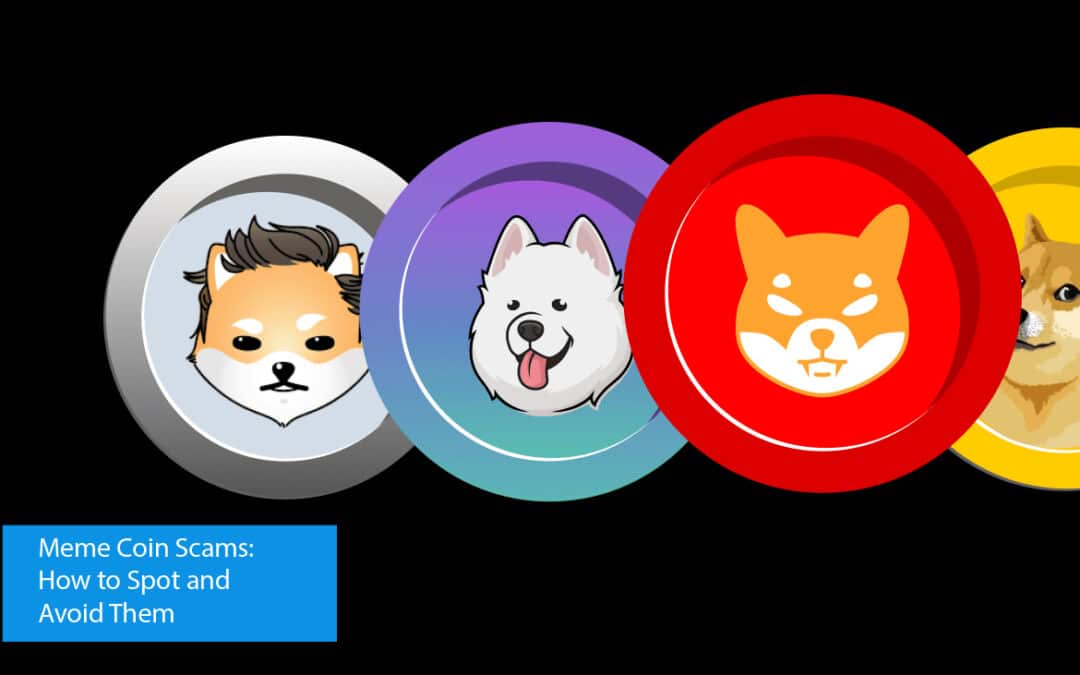Introduction: Meme coins, often inspired by internet jokes or popular culture references, have gained massive popularity in the cryptocurrency world. Coins like Dogecoin and Shiba Inu have made headlines, leading to the creation of countless other meme coins. However, the hype around meme coins has also attracted scammers looking to exploit the excitement and lack of regulation in the market. Here’s a detailed guide on how meme coin scams work and how you can protect yourself.
1. What Are Meme Coin Scams?
Meme coin scams involve fraudulent cryptocurrencies that are designed to capitalize on the popularity of meme coins. These scams often lure investors with promises of quick profits and viral success. Scammers create a new meme coin, promote it heavily on social media, and encourage people to buy in, only to pull the rug out from under investors, leaving them with worthless tokens.
2. How Meme Coin Scams Work
Meme coin scams typically follow a pattern that involves several key steps:
- Creation of the Meme Coin: Scammers create a new meme coin, often with a catchy name and a humorous or viral theme. These coins are usually built on existing blockchain platforms like Ethereum or Binance Smart Chain, making it easy for scammers to launch them quickly.
- Hype and Promotion: The scammers then promote the coin aggressively on social media platforms like Twitter, Reddit, and Telegram. They may use paid influencers, fake endorsements, and bots to create a sense of excitement and urgency around the coin.
- Liquidity Pools and Initial Listings: To make the coin appear legitimate, scammers often set up liquidity pools on decentralized exchanges (DEXs) like Uniswap or PancakeSwap. They may also list the coin on smaller, lesser-known exchanges to create the illusion of trading activity.
- Pump and Dump: As hype builds, more investors buy into the coin, driving up its price. At a certain point, the scammers, who hold a large amount of the coin, will sell off their tokens in a massive “dump,” causing the price to plummet. This leaves other investors with coins that are now worth a fraction of what they paid.
- Rug Pull: In some cases, the scammers may execute a “rug pull,” where they drain the liquidity from the coin’s trading pool, making it impossible for investors to sell their tokens. The scammer disappears with the funds, and the coin becomes worthless.
3. Common Signs of a Meme Coin Scam
Here are some red flags to watch out for when evaluating a meme coin:
- Anonymous Developers: If the team behind the coin is completely anonymous or lacks a verifiable track record, be cautious. Legitimate projects usually have transparent and identifiable developers.
- No Clear Use Case: Many meme coins are created as jokes or without any real purpose beyond speculation. If the coin has no clear utility or roadmap, it’s likely a pump-and-dump scheme.
- Excessive Hype on Social Media: While some level of promotion is normal, be wary of coins that rely solely on social media hype and influencer endorsements without providing any substantial information about the project.
- Locked Liquidity: If the coin’s liquidity is not locked or the lock is set for a very short period, there’s a high risk of a rug pull. Locked liquidity ensures that the developers cannot easily withdraw funds from the liquidity pool.
- Unrealistic Promises: Beware of coins that promise astronomical returns or claim to be the “next Dogecoin” without any supporting evidence. Scammers often use these promises to lure in unsuspecting investors.
- Limited Exchange Listings: If the coin is only available on small, obscure exchanges, it may be a sign that it’s not a serious project. Established projects tend to get listed on reputable exchanges.
4. How to Avoid Meme Coin Scams
To protect yourself from falling victim to a meme coin scam, follow these best practices:
- Research Thoroughly: Before investing in any meme coin, take the time to research the project, its developers, and its community. Look for whitepapers, roadmaps, and detailed explanations of the coin’s purpose and technology.
- Verify Developer Information: Check if the developers are known in the crypto community and if they have a history of successful projects. Avoid coins with anonymous or unverified teams.
- Check for Locked Liquidity: Verify whether the coin’s liquidity is locked and for how long. Locked liquidity is a good indicator that the developers are serious about the project and are not planning a rug pull.
- Avoid FOMO: Fear of missing out (FOMO) is a powerful tool scammers use to pressure you into making hasty decisions. Take your time and don’t rush into buying a coin just because it’s trending on social media.
- Watch Out for Pump and Dump Patterns: Be cautious if you see a coin’s price skyrocketing overnight without any solid news or developments backing it. This could be a sign of an impending pump and dump.
- Use Reputable Exchanges: Stick to buying meme coins on well-known and reputable exchanges that have stringent listing requirements.
5. What to Do If You Fall Victim to a Meme Coin Scam
If you suspect that you’ve been scammed by a meme coin, here’s what you can do:
- Stop Further Transactions: Immediately cease any further transactions with the coin or the exchange where it’s listed.
- Report the Scam: Report the scam to the exchange, any relevant regulatory authorities, and online platforms where the coin was promoted. While recovery may be difficult, reporting can help prevent others from falling victim.
- Seek Legal Advice: Depending on the amount of money lost, consider seeking legal advice. Some jurisdictions have laws that may allow for recovery or provide other forms of recourse.
- Share Your Experience: Warn others by sharing your experience on social media and in crypto communities. This helps raise awareness and can prevent the scammers from continuing their scheme with new victims.
Conclusion
Meme coins can be fun and potentially profitable, but they are also rife with scams. The key to avoiding meme coin scams is thorough research, skepticism of overly hyped projects, and a cautious approach to investing. Always remember that in the world of cryptocurrency, if something sounds too good to be true, it probably is.

